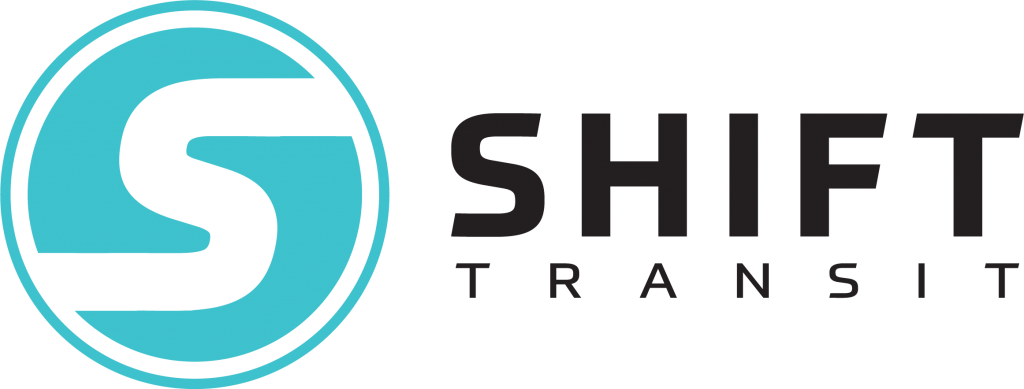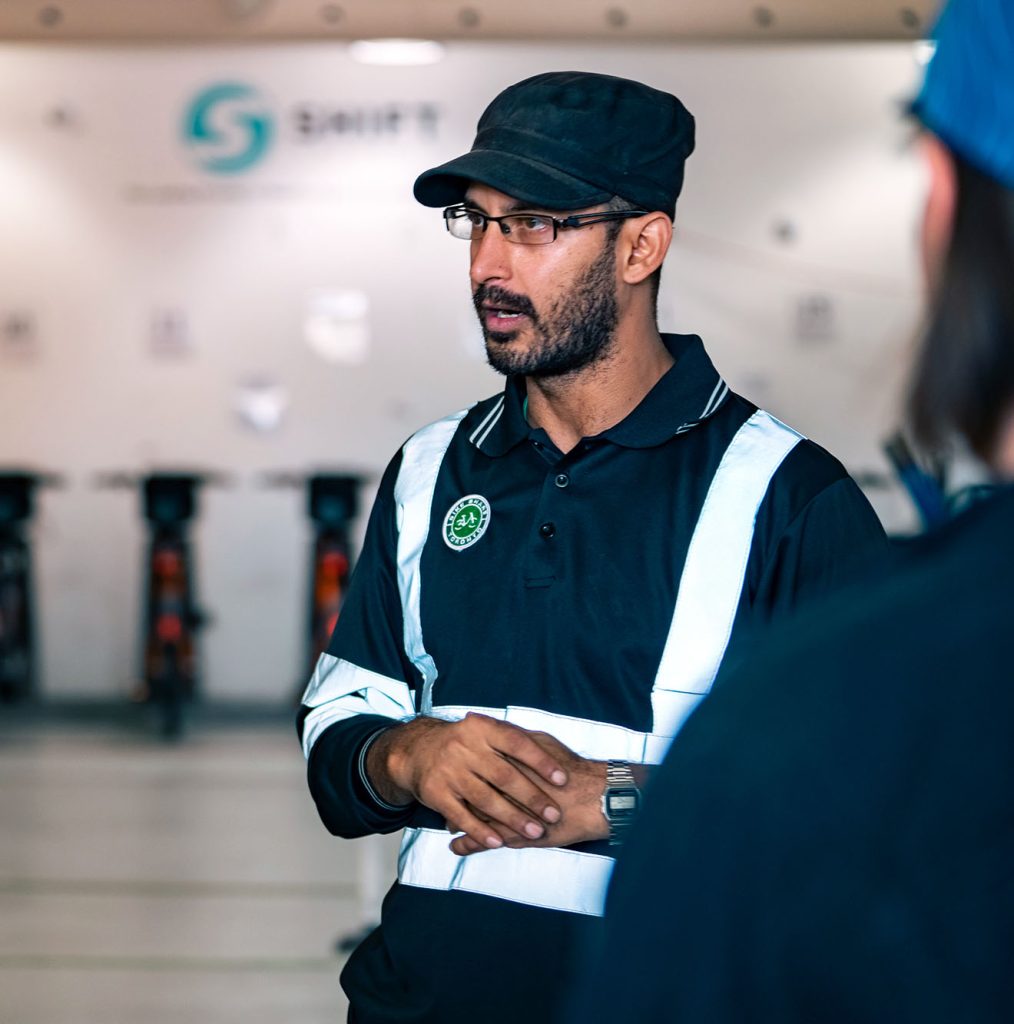Diving into operating a large urban bikesharing system
Delivering shared mobility services is a complex operation. From mechanics and station technicians to in-field mobility staff and more, micromobility operations is a multifaceted exercise. Shift Transit is proud to power multiple mobility programs across North America, including 7 bike share programs. We have been working alongside the Bike Share Toronto program since 2017 and seen the growth from 1.5M trips in 2017 to 5.7M rides in 2023 – a whopping 280% increase in usage! Behind the operational curtains are some key leaders that focus on building, developing and fine-tuning how day-to-day operations are run. Today we spotlight Ashar Ibrahim, who recently was promoted from the Head of Operations and Excellence to Director of Operations in Toronto. Ashar’s unwavering commitment and core understanding of how to navigate the ups and downs of team management within the bikesharing world has greatly contributed to the Bike Share Toronto operations.
Q: Ashar, can you tell us a bit about yourself?
I am committed and meticulous in envisioning the successful completion of anything that is entrusted to me. My past experiences in the service industry, love for the city, and interest in sustainable modes of transportation led me to take up the exciting opportunity of working with Shift Transit and the Bike Share Toronto program in 2020. It was the same year when the whole world was brought to a standstill due to Covid-19. The crisis opened avenues for me to reflect on how I could use my skills towards innovative operational approaches in support of urban living and mobility. This period of global pause allowed our city and communities to reflect on and reimagine the essence of urban transportation. While bicycles continued to remain a symbol of sustainable travel, I recognized that my strength in people management paired with technological skills could be applied to continue to move the needle in urban development.
Over time, I continue to hone my experience and skills in building high-performance teams that thrive on the evolving demands of our growing city. I take pride in sharing the wealth of knowledge I’ve accumulated across various roles, continuously striving to foster a culture of positive collaboration and innovation.
I didn’t get an initial “Yes, you’re hired!” when I first applied for a position – but that didn’t stop me. My fundamental belief in working towards success turned an unfavorable situation into an opportunity for growth. The initial setbacks were critical learning curves and my resolve never wavered. They served as catalysts, driving me to push the boundaries, to achieve both my personal ambitions and professional aspirations of enhancing urban life. This strengthened my focus and reinforced my drive to make a meaningful impact on city life, which landed me an operations job working to deliver Bike Share Toronto.
Outside of work, I hold a personal commitment to serving the community and helping to enrich the fabric of our city. I find joy in exploring diverse cuisines as well as exploring and learning new technological advancement techniques. These pursuits are more than hobbies, they are channels through which I bring fresh perspectives and innovative ideas to my team, constantly aiming to elevate the collective contribution to our city.
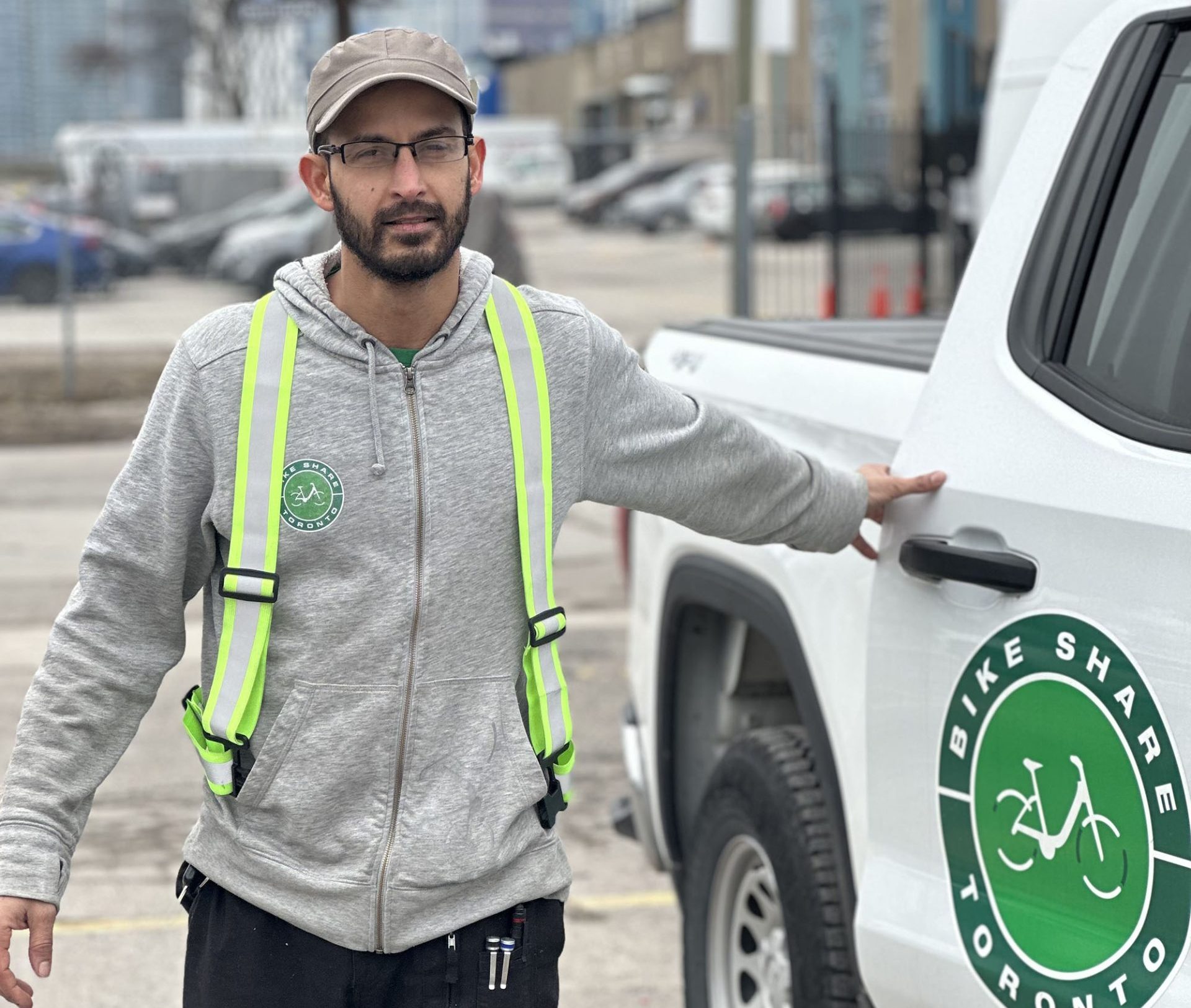
Q: You have been working with the Bike Share Toronto program for over 3 years now. How have you seen the system and operational approach transform over the years?
A: The last 3 years have seen tremendous growth in many respects. An area of the business that I have seen develop leaps and bounds is leading our day-to-day operations through a data-driven approach, which enables real-time decision-making. By leveraging data, we have been able to make informed and timely choices to positively impact our operations.
We have demonstrated openness and adaptability, especially in challenging environments, like through the COVID-19 pandemic and severe winter months. By being receptive to pivoting operational strategies to meet environmental and customer demands, we have been able to navigate obstacles that arose during operations, and at the same time expanded our reach by increasing the number of stations available to our customers.
In parallel, we have focused on fostering a culture among the staff, who value continuous improvement and professional development. This was possible through great lateral and vertical communication and relentless training of individuals, that kept the team aligned with the vision of growth and operational excellence.
Q: The Bike Share Toronto system footprint has grown from 200 stations and 2,000 pedal bikes in 2017 to 700+ stations and 9,000+ bikes (including 1,850 e-bikes) in 2023. As the system continues to expand, how do you ensure the team is ready to operationally deliver a growing market?
A: We believe our team is the core ingredient to our strength in execution. Clear and effective communication ensures the team is aligned with Bike Share Toronto’s overarching yearly targets, which then filters through the day-to-day operational objectives and expectations. We have regular one-on-one meetings between senior management and staff, in-person feedback sessions, and anonymous eNPS surveys to assist in keeping up with best practices. It also helps us to brainstorm ideas and pivot practices that are no longer practical for us.
Another aspect that we have been able to tap into is individual skill development. Employees who have shown potential to take the program to the next level have been given opportunities to enhance their skills and responsibilities; their growth is targeted through training programs, coaching from senior management, and most importantly through encouraging individuals to continuously learn and keep up with the trends and best practices in the industry.
As the program expands, the team is prepared to adapt and be flexible in response to unforeseen challenges. Maintaining best practices along with research promotes problem-solving skills among the team members and helps them to navigate through evolving situations. The managers and teams continuously collaborate to foster a positive culture for the team, sharing skill sets, leveraging each team member’s strengths, and tracking key performance indicators will remain key contributors to successful program delivery.
Q: Rebalancing is one of the most complex tasks in shared mobility. How do you manage the right balance of supply and demand to meet customer needs?
Over the years, we have tested several strategies to find the right balance of supply and demand to meet customer needs. We have found that real-time data analysis matched with historical data points plays an important role in predicting customer demand, anticipating peak usage hours, and highlighting popular, busy locations so that we can schedule and allocate our resources effectively.
Our operations team coordinates with each other to deploy and redistribute bikes within the areas of high demand, to service all pockets of the system or bring them back to our facility for repair.
With the growth of the program, Bike Share Toronto’s popularity has grown beyond the peak summer season, especially as a mode of transportation to and from work and through daily life. Last year alone, we executed hundreds of valet service locations that helped empower users to use bike share to reliably get to and from work in the downtown core, as well as provide unlimited bike and dock availability at major events and popular weekend leisure routes.
Training the mobile in-field team to service valet locations has positively affected how we ensure bikes and docks are available to riders across the city, where stations or the number of docking points may be limited.
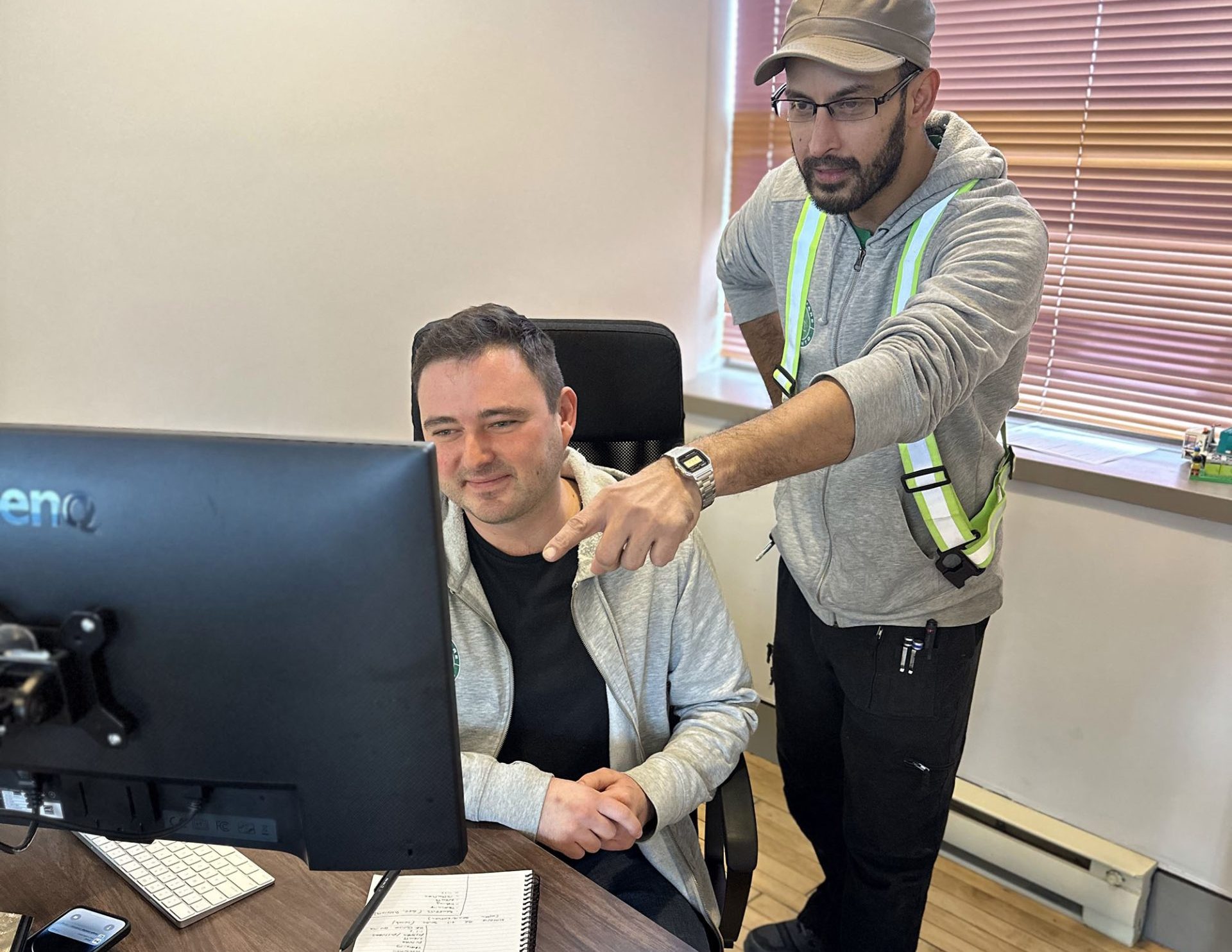
Q: As Director of Operations, you have a crucial role to play leading high-performing teams in field operations, bike repair, technicians and operational associates. How do you approach balancing building great teams with ensuring these teams deliver on operational targets?
A: Building high-performance teams that gain experience, possess the necessary skills, fit the team culture, and are willing to learn is an ongoing process. A thorough recruitment process ensures that we evaluate both technical competence and ability to work as a team. The foundation of every team is further strengthened with continuous training and development efforts.
I believe in defining operational targets with each team to ensure everyone understands their responsibilities and the outcomes we are collectively working towards. The trust in everyone’s capabilities to be a true team player has been the cornerstone of our success. We provide opportunities for professional development and foster a learning experience and culture that has driven positive results for operational targets.
Q: What are you most excited about for 2024?
A: Productivity and innovation. I am excited to leverage the full potential of our mobility operations service with the right talent and through upskilling members on the team. This will drive the success we are reaching for and help us contribute to another record-breaking year for Bike Share Toronto.
I am also keen to work with our current vendors and build these vendor business relationships to reinforce our objectives that positively impact our operations.
Apart from the operational aspect of the business, I know that the Bike Share Toronto program has contributed to reducing the carbon footprint as well as helping to alleviate the City’s traffic during peak hours. Thanks to the growth of technological innovation, we can revolutionize various aspects of our operations to continue to make a broader impact.
